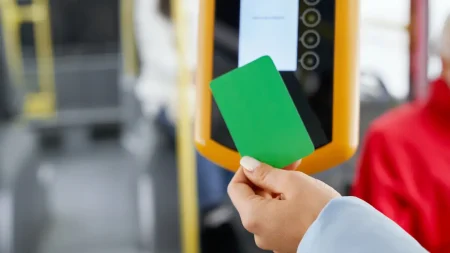The liquor industry in South Africa is heavily regulated, and obtaining or renewing a liquor license requires compliance with various provincial rules and regulations. Whether you’re a tavern owner, a restaurant manager, or any other type of business that serves alcoholic beverages, it’s essential to stay on top of the liquor license renewal process. The requirements for renewal, however, vary from one province to another.
This article outlines the key documentation and steps required to renew a liquor license in South Africa, focusing on the specifics across different provinces.
Liquor License Renewal: Key Documents and Requirements
The liquor license renewal process in South Africa is governed by provincial liquor boards or authorities. Each province has its unique set of rules, although certain documents are generally required across the board. These documents often include proof of the business’s legal standing, identity verification, and payment of renewal fees.
Below is a summary of the essential documentation required for liquor license renewal across the provinces:
Eastern Cape
For businesses located in the Eastern Cape, the following documents are necessary for liquor license renewal:
Certified Copy of Current Liquor License: This must include all the conditions associated with the current license.
Certified Copy of Identity Document: The identity document of the person holding the liquor license must be provided.
Tax Clearance Certificate: The certificate must be valid and active, proving that the business complies with tax regulations.
Proof of Payment of Renewal Fees: Renewal fees must be paid into the relevant provincial liquor authority’s account.
It’s essential to ensure all documents are submitted in good time to avoid delays in the renewal process.
Free State
In the Free State, the liquor license renewal process is slightly different but requires some of the same core documents:
Completed Renewal Application Form: This form can be obtained from the Free State Liquor Authority and must be completed in full.
Certified Copy of Current Liquor License: Just like the Eastern Cape, this must include the conditions of the license.
Certified Copy of Identity Document: For the license holder.
Tax Clearance Certificate: The certificate from SARS must be valid and active.
Proof of Payment of Renewal Fees: Fees must be paid into the Free State Liquor Authority’s account.
As with other provinces, it is important to ensure that the payment of renewal fees is made promptly and correctly.
Gauteng
Gauteng has its own set of requirements, but they largely mirror those of the Eastern Cape and Free State. Businesses in Gauteng should expect the following:
Completed Renewal Application Form: Available from the Gauteng Liquor Board, this form is mandatory for all businesses.
Certified Copy of Current Liquor License: This should include all conditions linked to the license.
Certified Copy of Identity Document: The identity document of the license holder must be submitted.
Tax Clearance Certificate: Ensure that this certificate from SARS is both valid and active.
Proof of Payment of Renewal Fees: Payments should be made into the Gauteng Liquor Board’s account.
One crucial point to note is that in Gauteng, the renewal must be completed on or before the anniversary date of the liquor license. Failing to do so can lead to penalties or delays in obtaining a renewed license.
KwaZulu-Natal (KZN)
KwaZulu-Natal has specific requirements for liquor license renewal, including additional steps compared to some other provinces:
Certified Copy of Current Liquor License: This document should include all relevant conditions.
Certified Copy of Identity Document: This document must be provided for the license holder.
Tax Clearance Certificate: A valid and active certificate is required.
SAPS Clearance Certificate: This certificate should be valid for more than three months from the date of issue.
Completed Renewal Application Form (KZNLA 19): Available from KZNLA offices, this form must be filled out and submitted.
Payment: Ensure that payment is made only once the Liquor Authority issues instructions.
It is essential to be mindful of the SAPS clearance certificate requirement, which is not typically asked for in other provinces. Businesses should ensure that all documents are in order before submission to avoid complications.
Limpopo
In Limpopo, the liquor license renewal process follows a familiar pattern, with a few important documents:
Completed Renewal Application Form: Obtainable from the Limpopo Liquor Board, this form needs to be filled out accurately.
Certified Copy of Current Liquor License: Include the license conditions.
Certified Copy of Identity Document: For the license holder.
Tax Clearance Certificate: Ensure this certificate is valid and active.
Proof of Payment of Renewal Fees: This should be paid into the Limpopo Liquor Board’s account.
As with other provinces, timely submission of documents is essential to avoid any unnecessary delays in the renewal process.
Mpumalanga
Businesses operating in Mpumalanga need to adhere to the following requirements:
Completed Renewal Application Form (MER-199): Available from the Mpumalanga Economic Regulator (MER), this form must be completed fully.
Certified Copy of Current Liquor License: Include any conditions tied to the license.
Certified Copy of Identity Document: The document must be provided for the person holding the liquor license.
Tax Clearance Certificate: A valid and active certificate from SARS is essential.
Proof of Payment of Renewal Fees: The payment should be made into the MER’s account.
By staying organized and submitting all required documents, businesses can successfully renew their liquor licenses.
North West
For the North West province, businesses must adhere to the following renewal requirements:
Completed Renewal Application Form: This form is available from the North West Liquor Board.
Certified Copy of Current Liquor License: The license must include conditions.
Certified Copy of Identity Document: For the license holder.
Tax Clearance Certificate: The certificate from SARS must be valid.
Proof of Payment of Renewal Fees: Fees should be paid into the North West Liquor Board’s account.
Ensuring timely submission of all the necessary documents will prevent any delays in the renewal process.
Northern Cape
The Northern Cape follows a similar process to other provinces, with the following requirements:
Completed Renewal Application Form: Available from the Northern Cape Liquor Board.
Certified Copy of Current Liquor License: Include the conditions of the license.
Certified Copy of Identity Document: For the license holder.
Tax Clearance Certificate: Valid and active from SARS.
Proof of Payment of Renewal Fees: Fees should be paid into the Northern Cape Liquor Board’s account.
Just like in other provinces, it is vital to ensure all documentation is complete and accurate to prevent any complications.
Western Cape
The Western Cape has specific guidelines for liquor license renewal, including:
Renewal Notice (Form 21A): This notice is issued by the Western Cape Liquor Authority (WCLA).
Proof of Payment of Renewal Fees: Payment must be made into the WCLA’s bank account.
Updated Contact Details: Businesses must ensure their contact information is current.
The Western Cape process is straightforward, but attention to detail is crucial in ensuring that payments are made to the correct account and that updated contact details are provided.
General Liquor License Renewal Requirements
Across all provinces, some documents are commonly required, including:
Valid Tax Clearance Certificate from SARS.
Proof of Payment of Renewal Fees to the relevant liquor authority’s account.
Completed Renewal Application Form, specific to each province.
Certified Copies of the Identity Document and Current Liquor License.
Check also: Liquor License Application Process in South Africa: Costs and Requirements
Renewing a liquor license in South Africa is a relatively straightforward process, provided all necessary documents are submitted correctly and on time. While the specific requirements can vary between provinces, businesses must ensure they comply with local regulations. Whether you operate in Gauteng, KwaZulu-Natal, or the Western Cape, staying organized and proactive with your renewal application is key to avoiding unnecessary delays or fines.
Remember, each province has its timeline and specific forms, so always check with your local liquor board for the most up-to-date information.










